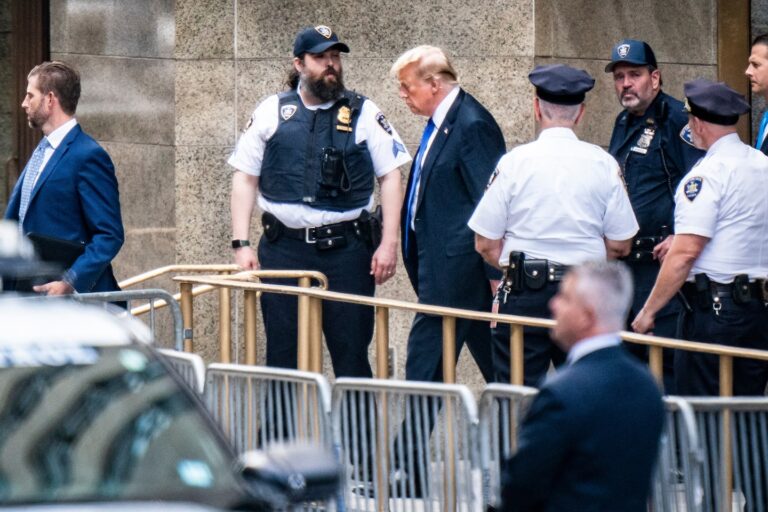This is evident in a national poll conducted by YouGov for CBS News. Pollsters conducted interviews in mid-May and then reinterviewed many of the same people after the ruling. The change? Not much.
In the first poll, respondents were asked if they thought Trump was guilty. In the more recent poll, they were asked if they thought the jury was right in convicting him. In the first poll, 56% of respondents said they thought Trump was guilty, but in the new poll, 57% said the verdict was right. Both Democrats and Independents believed Trump was guilty and that the jury reached the right verdict, but a majority of Republicans disagreed.
About one-fifth of Republicans said the jury’s verdict was correct, but this can be viewed in several ways. One is that about one-fifth of Republican primary voters voted for another candidate despite or because Trump had secured the party’s nomination. Another is that about one-fifth of Trump’s supporters expressed in March that they believe Trump committed serious crimes. This overlaps with another important consideration: Thinking the verdict was correct does not mean that Republicans will not support Trump against Biden. Many Trump supporters have long considered him the better of the bad options.
And this minority shouldn’t distract from the fact that most Republicans accept Trump’s claim that the trial was biased against him. Views on the fairness of the trial closely align with views on the verdict, with most Republicans saying they believe the verdict was unfair.
Asked why they thought the trial was unfair, nearly all Republicans who did said it was because the trial was political — a central argument made by Trump and his allies.
The YouGov poll found that most Americans believe Trump’s crimes were serious, including a quarter of Republicans and just under half of independents.
The latest CBS poll also asked respondents whether they thought Trump was fit to serve as president if he was convicted, and majorities, including half of independents, said “no.”
This, too, would be surprising outside of recent history, but in 2016 polls repeatedly showed skepticism about Trump’s fitness to be president, and yet he was elected.
Certainly, given how recent electoral history has played out, it’s easy to assume that this will have no effect on Trump’s political standing. This poll certainly doesn’t offer much of a starting point for those who argue otherwise. Still, one might ask, does it matter that 10 percent of Republicans think Trump is unfit to be president?
Maybe so. And maybe not. For example, 5% of Republican voters supported Joe Biden in 2020, a reminder that some internal dissent is to be expected. (That same year, 4% of Democrats supported Trump.) These voters might not turn out to vote, reducing the number of votes Biden needs to win the state. Or, these voters might decide as the race progresses that Trump might be a better candidate than Biden.
(It’s too early to interpret the national polls too heavily; it takes some time for quality election polls to be conducted and published. But so far there are few signs that anything has changed since the ruling.)
Nor should we read too much into the finding that Republicans were overwhelmingly more likely to say it was important to pledge loyalty to the former president after the verdict. Many Trump supporters have argued that the verdict will solidify support for Trump and deal a blow to the left. But loyalty to Trump has been a central component of support for him since the early days of his political career.
The CBS poll had one other particularly noteworthy finding: the number of Republicans who said the verdict had made them have less trust in the criminal justice system. In fact, a majority of respondents overall said their trust in the system had decreased since the verdict (though a majority of respondents said their trust in the system was either unaffected or had increased).
It also reflects attitudes that existed before the verdict. Trump has spent years sowing skepticism among his supporters about law enforcement and the justice system. From the outside, this is clearly a self-serving move. Trump has been the subject of investigations for years, and it serves Trump well if his supporters see those investigations as biased.
But just because this is expected doesn’t mean it’s not surprising. These questions about the impact of news stories often just reflect pre-existing views: Many of those who say they have lost confidence in the justice system are simply reflecting the distrust that Trump worked so hard to build in the first place. This is a key reason why many Republicans believe the trial was unfair and that the verdict was wrong.
Trump and his legal team had one month to convince the jury not to convict, under the constraints of a criminal trial and the judge imposed, but Trump has spent years trying to influence the Republican Party, and he has been very successful at it.

